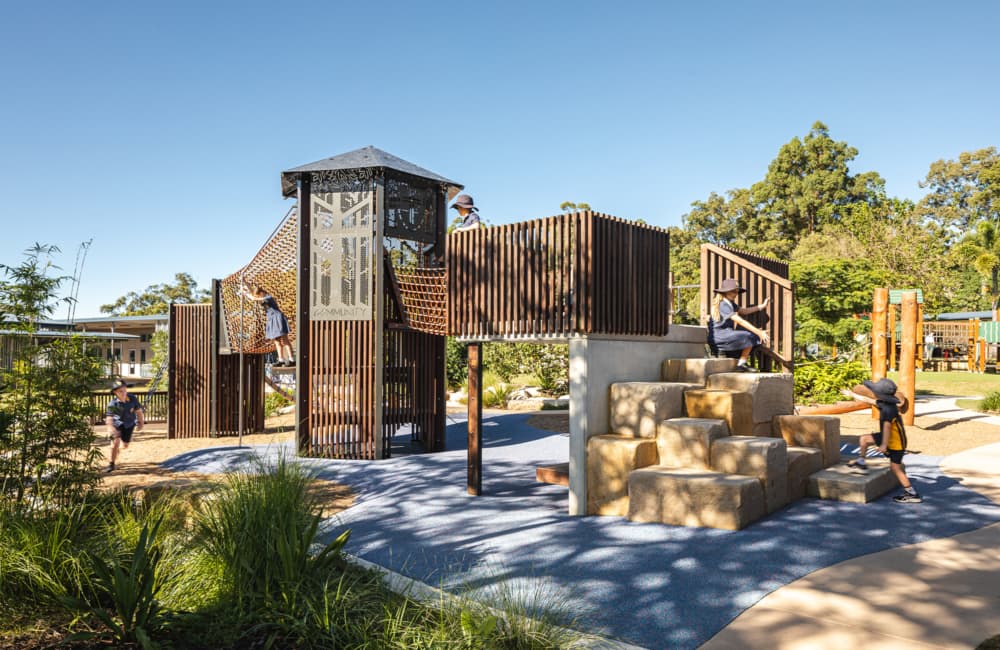Nature play in playgrounds is important for children for several reasons:
1. Physical Health: Nature play encourages children to engage in physical activity and exercise. Natural environments offer diverse opportunities for movement, such as climbing, running, jumping, and balancing. These activities help children develop their motor skills, coordination, strength, and overall physical fitness.
2. Cognitive Development: Interacting with nature in playgrounds stimulates cognitive growth. Natural settings provide rich sensory experiences, allowing children to observe, touch, smell, and hear the elements around them. This sensory stimulation enhances brain development, perception, and sensory integration. Nature play also fosters problem-solving skills, critical thinking, creativity, and imaginative play as children explore and interact with the natural environment.
3. Emotional Well-being: Spending time in nature has positive effects on children’s emotional well-being. Natural settings create a calming and soothing environment, reducing stress and anxiety. Nature play provides an opportunity for children to experience freedom, autonomy, and a sense of adventure. It promotes emotional resilience, self-regulation, and a connection with the natural world, which can contribute to improved mental health and emotional balance.
4. Social Interaction and Communication: Nature play encourages social interaction and cooperation among children. Natural environments provide open-ended play opportunities where children can engage in shared activities, collaborate, and problem-solve together. It fosters communication, teamwork, negotiation, and the development of social skills like empathy, cooperation, and conflict resolution.
5. Environmental Awareness and Stewardship: By engaging in nature play, children develop a deeper understanding and appreciation for the environment. They learn about the importance of nature, the interdependence of living things, and the need to care for and protect the natural world. Nature play can inspire environmental consciousness and a sense of responsibility towards the environment, nurturing future environmental stewards.
6. Imagination and Creativity: Nature play stimulates children’s imagination and creativity. Natural elements offer endless possibilities for imaginative play, storytelling, and role-playing. Children can transform sticks into magic wands, create imaginary worlds in treehouses, or pretend to be explorers in a forest. Nature’s unpredictability and variability provide an ever-changing canvas for children’s creativity and imaginative play.
7. Health and Well-being: Spending time in nature has various health benefits, including improved mental health, reduced stress levels, enhanced attention, and increased overall well-being. Nature play in playgrounds allows children to connect with the natural world, reap these health benefits, and develop a lifelong affinity for nature.
It fosters their connection with the natural world, promotes well-being, and nurtures essential life skills, creativity, and environmental stewardship.






